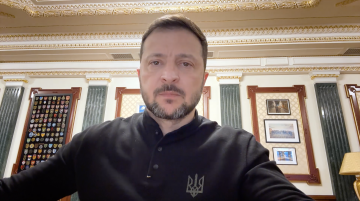The International Working Group on Russian Sanctions, headed by the Head of the Office of the President Andriy Yermak and the Director of the Freeman Spogli Institute for International Studies (FSI), Ambassador Michael McFaul, presented a new action plan on further strengthening sanctions pressure on Russia — Action Plan 3.0.
The document contains specific steps that can significantly undermine Russia's economic and military potential to stop its aggression in Ukraine sooner.
“The proposed sanctions measures should become a powerful response of the international community to Russian aggression. The success of the sanctions depends on their collective enforcement and constant strengthening. The measures, stipulated in Action Plan 3.0, are ambitious but achievable, they are designed to drastically limit Russia's ability to finance its military actions in Ukraine,” Andriy Yermak emphasized.
The experts expect that the package of bans will reduce the aggressor country's export revenues by $70-80 billion per year, cause a significant deficit in Russia's external trade and in its budget, and weaken its currency and overall economic stability.
“We believe that the sanctions proposals, formulated in the new Action Plan, will make Russia pay a higher price for its invasion into our country and will ensure support for democratic Ukraine in defending its territorial integrity and national sovereignty,” Vladyslav Vlasiuk, Advisor to the Head of the Presidential Office, Secretary of Ukrainian Working Group on Russian Sanctions, noted.
The proposed measures include the confiscation of the frozen assets of the Central Bank of the Russian Federation, which should be used for military and economic support for Ukraine and its reconstruction. They also include the enforcement of the current oil price cap and the suppression of the shadow fleet of tankers.
The experts propose to introduce a full embargo on uranium, aluminum, and steel and to resume the work of the Coordinating Committee for Multilateral Export Controls to enforce the ban on exports of critical technologies, equipment, and components, used in the defense and oil and gas sectors, to Russia.
According to the members of the working group, the sanctions list should include more individuals and organizations that support or finance Russian aggression. In addition, it is proposed to impose sanctions on Western companies involved in Russian logistics operations and those that facilitate its circumvention of restrictions.
The document also emphasizes the designation of Russia as a state sponsor of terrorism and the strengthening of the enforcement of existing sanctions.



